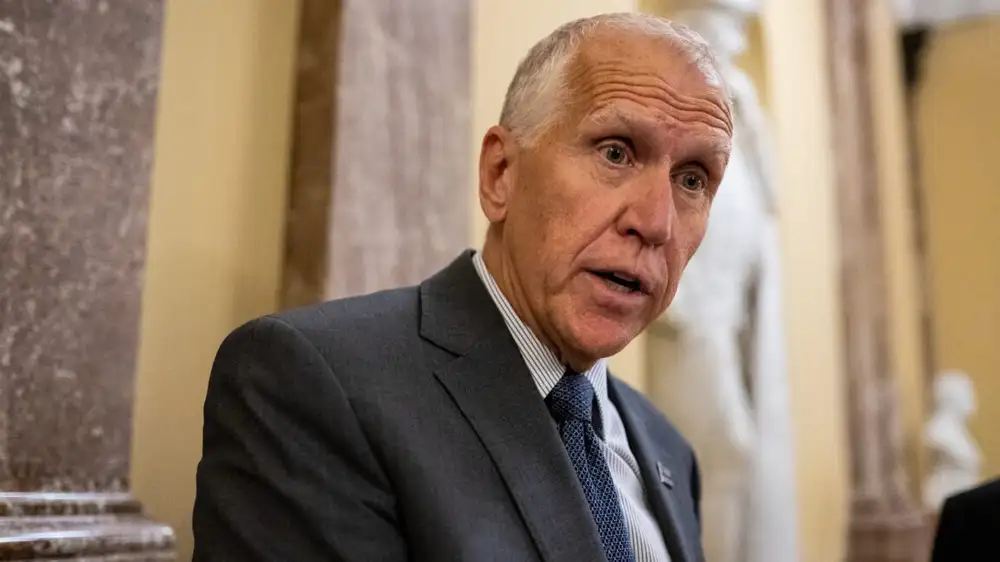The Senate Republicans' version of President Trump's tax bill would slash federal spending on health provisions—Medicare, Medicaid, and the Affordable Care Act—by $1.1 trillion by 2034. And in that time, an estimated 11.8 million people would lose their health insurance.
That’s according to an analysis released over the weekend by the Congressional Budget Office. The massive piece of legislation is likely to change as senators are currently running a "vote-a-rama" for rapid-fire amendment proposals.
The bulk of the estimated reductions in health spending come from Medicaid, which will lose more than $1 trillion. Of the 11.8 million people who could lose health insurance, 1.4 million are people without "verified citizenship" or "satisfactory immigration status," the CBO noted.
The overall number of people estimated to lose health insurance is an increase over what was estimated from the House's version of the bill, which was about 10.9 million.
The substantial cuts to Medicaid, a program jointly funded by states and the federal government, largely stem from two features in the bill, The New York Times notes. One is a strict nationwide work requirement, despite the fact that the vast majority of working-aged adults on Medicaid are already working. The new requirements are estimated to cut Medicaid spending by $325 billion over a decade, while a 2023 CBO analysis found that a strict work requirement would not increase employment.
The second Medicaid-gutting feature is restrictions on how states tax medical providers to get more federal contributions for Medicaid—aka provider taxes. In this maneuver, states can add taxes on medical providers, then turn around and use the funds to provide medical providers with higher Medicaid payments. This ostensibly increases a state's spending on Medicaid, allowing it to increase the matching funding from the federal government. The Senate bill would force many states to lower their current tax rates, which would contribute to cutting federal spending by an estimated $375 billion.
The legislation has detractors within the Republican ranks and is also deeply unpopular among Americans. Sen. Thom Tillis (R-NC), who this weekend announced he will not seek re-election, harshly criticized the bill after opposing it in a procedural vote. "What do I tell 663,000 people in two years, three years, when President Trump breaks his promise by pushing them off of Medicaid because the funding's not there anymore," he asked Sunday night on the Senate floor.
Polling by the Kaiser Family Foundation earlier this month found that 64 percent of Americans opposed the House version of the bill. But, the bill's unfavorability jumped to 74 percent when people were asked: "What if you heard that if passed, the tax and budget bill being discussed by Congress would increase the number of people without health insurance by about 10 million?"

 Jackery’s capable, solar-powered generator is nearly half off
Jackery’s capable, solar-powered generator is nearly half off